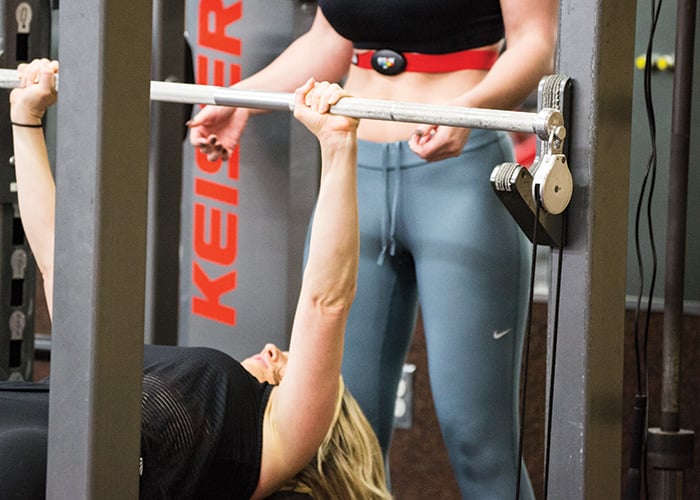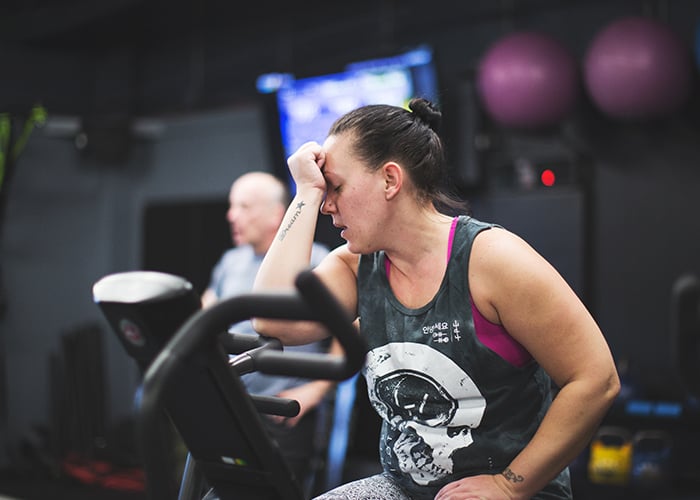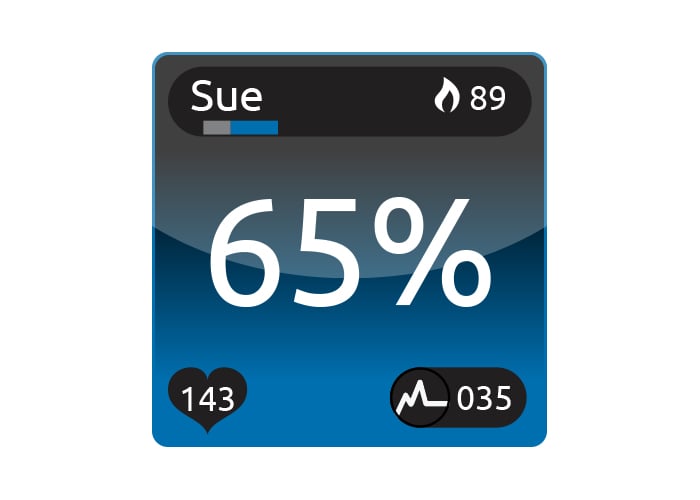Objective vs. Subjective Feedback: Why Both are Valuable
Wearable technology has been the #1 fitness trend for two years in a row according to a worldwide survey by the American College of Sports Medicine. At MYZONE, we are proud to bring you an incredibly accurate and versatile fitness tracker heart rate app.
Objective vs. Subjective Feedback: Definitions
Your MYZONE heart rate monitor provides you with multiple sources of objective feedback about your exercise intensity and progress – heart rate, percentage of maximum heart rate, and caloric expenditure are a few examples. Objective feedback consists of specific and measurable data points that provide information about our effort and performance. This type of feedback is very important for holding us accountable in hitting our targets and achieving our goals.
As human beings, we also rely heavily on subjective sources of feedback when making decisions about our experience and future behaviors. Subjective feedback consists of our perceptions, emotions/feelings, and intuition and is important for sustaining motivation and adherence. Examples of subjective feedback related to exercise are the rate of perceived exertion (RPE) scale (how hard we perceive/feel we are working) and the mood or feeling we experience during and after exercising.
So, if both objective and subjective feedback are important in moving us toward our fitness goals, how can we best leverage each?
Objective Feedback
We recommend using objective feedback when you are setting and monitoring frequency, intensity, time, and type (F.I.T.T.) goals. Use the MYZONE heart rate app to hold yourself accountable for working out for a certain number of days per week (frequency), at a certain intensity zone per workout (intensity), for a certain duration per workout (time), or for using a certain mode of exercise like running (type). You can label each of your moves in your Activity Calendar to track the type of exercise you performed.
Objective feedback is also useful when setting and monitoring caloric expenditure goals. If you (or your trainer) want you to hit a certain caloric expenditure per workout or per week, you can use the MYZONE system to track calorie burn. Because caloric expenditure for all wearable technology is based on estimate equations, you should consider that your reported caloric expenditure is just that – an estimate.
Another way you could track your effort is through using the MYZONE Effort Points (MEPs) system. You and/or your trainer can determine a target number of MEPs you should earn per workout or per week to achieve your goals.
Subjective Feedback
We recommend using subjective feedback when you are making decisions about when and how hard you are going to workout. You know your energy levels, schedule, and body best, so set yourself up for success by using your intuition and preferences to decide when and how hard to workout in order to have an optimal experience. Then, use objective feedback to hold yourself accountable and meet the goals you have set.
Use subjective feedback to check in with how hard you feel like you are working during the session and to see if your RPE matches the objective feedback your heart rate monitor is giving you. For example, if you are in the GREEN zone (70-79% max heart rate; MHR), we would anticipate that your RPE would be around a 7 out of 10 (with 10 being maximal exertion).
If you find that your RPE and your %MHR are not matching very well, that could be an indication of several different things. One option is that your estimated MHR might need to be adjusted in the MYZONE heart rate app system (contact MYZONE Support or the individual who manages your facility’s Partner Page to inquire about adjusting your estimated MHR).
Another option is that you are over trained or under the weather. If you find that you are feeling fatigued, and your RPE is much higher than your %MHR, it might mean you need to take a rest or active recovery day.
You can also use subjective feedback during your workout to check in with how you are feeling – make sure you are enjoying the experience. Take time to notice the feeling/mood you experience following your exercise session (i.e. you feel energized, revitalized, or happy). We tend to make decisions from an emotional/intuitive place rather than a logical/rational place, so noticing the pleasant feelings following exercise can motivate us to come back for more!
Conclusion
We encourage you to play with both objective and subjective sources of feedback and see what rhythms work best for you and your fitness goals. One of the great features of the MYZONE heart rate app is that you can go back and re-visit your Activity Calendar to monitor the patterns of your workouts and to track your progress – you can get a big picture view of what types of feedback are serving you best over the long haul!
Check in and use both your objective and subjective sources of feedback to keep charging toward your goals! Post to Facebook, Instagram, and Twitter and use the hashtags: #effortrewarded and #myzonemoves.
For more tips on how to use the MYZONE heart rate app, follow us during Fitness Fridays on Facebook Live (subscribe on MYZONE’s Facebook Page) – 8 am PT, 11 am ET, and check out our MYZONE Moves Podcast on iTunes or Google Play.
Keep moving forward!
Share this
You May Also Like
These Related Stories

Group Heart Rate Tracking: Best Practices

Get Clients Started with Myzone: Submaximal Assessment






